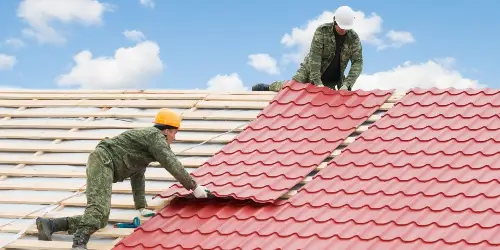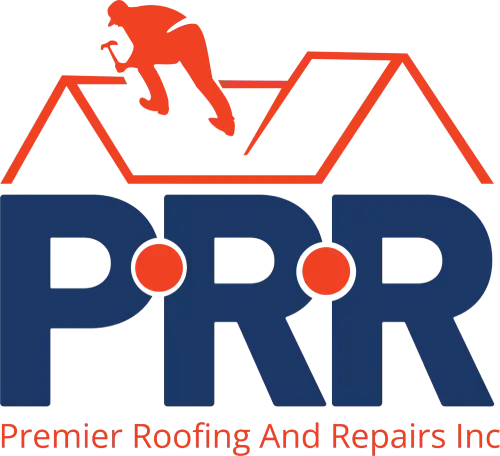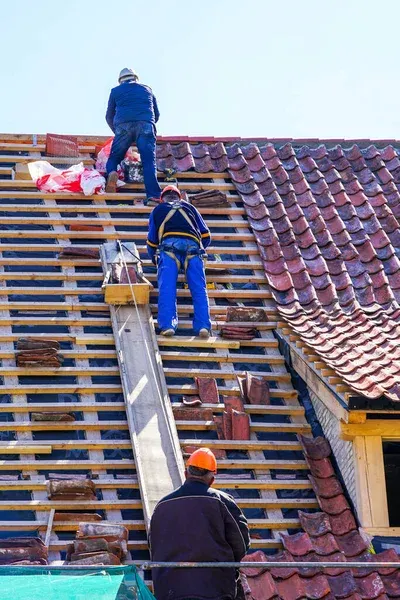Ultimate Guide to Roof Installation
Welcome to the ultimate guide on roof installation, where we will walk you through the process, explore various types of roof installations, and provide valuable insights to make informed decisions. Whether you’re a homeowner considering a new roof or a business owner seeking commercial roofing solutions, this article will equip you with the knowledge and confidence you need. Let’s dive in!

Roof Installation Process: Step-by-Step
When it comes to roof installation, careful planning and execution are crucial. Here’s a step-by-step breakdown of the roof installation process
Inspection and Assessment
Before starting any installation, a thorough inspection of the existing roof is essential. This helps identify any issues or potential problems that need to be addressed before installation.
Material Selection
Choosing the right roofing material is vital for durability and aesthetics. Options include asphalt shingles, metal roofing, clay tiles, and more. Consider factors like climate, budget, and architectural style.
Preparation
Clear the roof of any debris and ensure a clean surface for installation. Remove old shingles or roofing materials, repair damaged areas, and reinforce the roof structure if necessary.
Underlayment Installation
The underlayment acts as a waterproof barrier between the roofing material and the roof deck. It provides additional protection against leaks and moisture.
Roofing Material Installation
Carefully lay and secure the chosen roofing material following the manufacturer’s guidelines. Attention to detail during this step ensures a long-lasting and visually appealing roof.
Flashing and Ventilation
Proper installation of flashing around chimneys, vents, and other roof protrusions is vital to prevent leaks. Additionally, ensuring adequate ventilation helps extend the roof’s lifespan.
Final Inspection
After completion, conduct a final inspection to verify the quality of the installation and address any remaining concerns.
Types of Roof Installation
Every roofing project is unique, and different types of roof installations cater to various needs. Let’s explore some popular options
Asphalt Shingles
Asphalt shingles are the most common roofing material due to their affordability, ease of installation, and wide range of colours and styles. They are suitable for various architectural designs and provide reliable protection.
Metal Roofing
Metal roofing offers exceptional durability and longevity, making it a sustainable option. It reflects heat, reduces energy costs, and is highly resistant to harsh weather conditions.
Clay Tiles
Clay tiles add a touch of elegance to any property. They are durable, fire-resistant, and provide excellent insulation. However, they are heavier, so proper structural support is essential.
Slate Roofing
Slate roofing is renowned for its natural beauty and longevity. It can last for decades and requires minimal maintenance. However, it’s a premium option and requires skilled installation.
Green Roofing
Green roofing involves planting vegetation on the roof, creating a living, eco-friendly surface. It offers insulation, reduces stormwater runoff, and improves air quality.
Solar Panels Integration
Installing solar panels on the roof allows for harnessing solar energy, reducing electricity bills, and promoting sustainability.
Finding the Best Commercial Roofers
When it comes to commercial roof installation, hiring the right professionals is crucial for a successful project. Consider the following factors when selecting commercial roofers
Experience and Expertise
Look for a roofing company with a proven track record in commercial roof installations. Experienced roofers can handle complex projects and deliver quality results.
Credentials and Licenses
Ensure the company is licensed and certified to operate in your area. Valid credentials indicate compliance with industry standards.
Insurance Coverage
Roofing is risky, so verify that the roofing company carries adequate liability insurance and workers’ compensation coverage to protect you from potential liabilities.
References and Reviews
Check for customer reviews and testimonials to gauge the company’s reputation and customer satisfaction level.
Transparent Pricing
Request detailed quotes and compare them from multiple contractors. Be wary of unusually low prices, which may indicate subpar materials or workmanship.
Warranty
A reputable roofing company should provide warranties for both materials and labour, giving you peace of mind for years to come.
FREQUENTLY ASKED QUESTIONS
How long does the roof installation process usually take?
The duration of roof installation varies depending on factors like the size of the roof, weather conditions, and the complexity of the project. Generally, it can take anywhere from a few days to weeks.
What is the average cost of roof installation?
The cost of roof installation depends on factors such as the type of material, roof size, and labour charges. On average, residential roof installation may range from $5,000 to $20,000 or more.
Can I install a new roof myself?
Roof installation is a complex and dangerous task. It’s advisable to hire professional roofers to ensure safety and a high-quality installation.
What are the signs that my roof needs replacement?
Cracked or curling shingles, water leaks, excessive granule loss, and sagging roofs are some signs indicating that your roof might need replacement.
How often should I inspect my roof?
Regular roof inspections are essential. Inspect your roof at least twice a year and after severe weather events to identify any damage early on.

